Education NI: 2020 marked a year of dramatic challenges
- Published
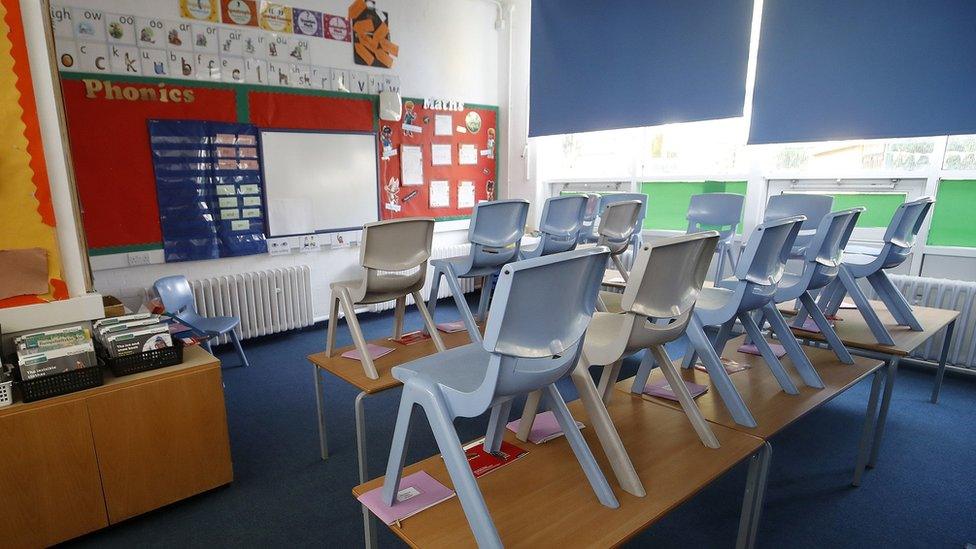
In mid-March, the NI Executive took the unprecedented step of closing all schools for months
It has been a year like no other for schools, colleges and universities.
2020 began with the promise of a "fundamental review" of the education system as part of the New Decade, New Approach deal.
But, within a few short weeks, more immediate and dramatic challenges were caused by the coronavirus pandemic.
In mid-March, the executive took the unprecedented step of closing all schools for months.
Making the announcement, First Minister Arlene Foster acknowledged that the impact on children and society would be "enormous".
Hundreds of schools did remain open for vulnerable children and the children of key workers.
But attendance statistics showed that only about 1% of all children were in school between March and June.
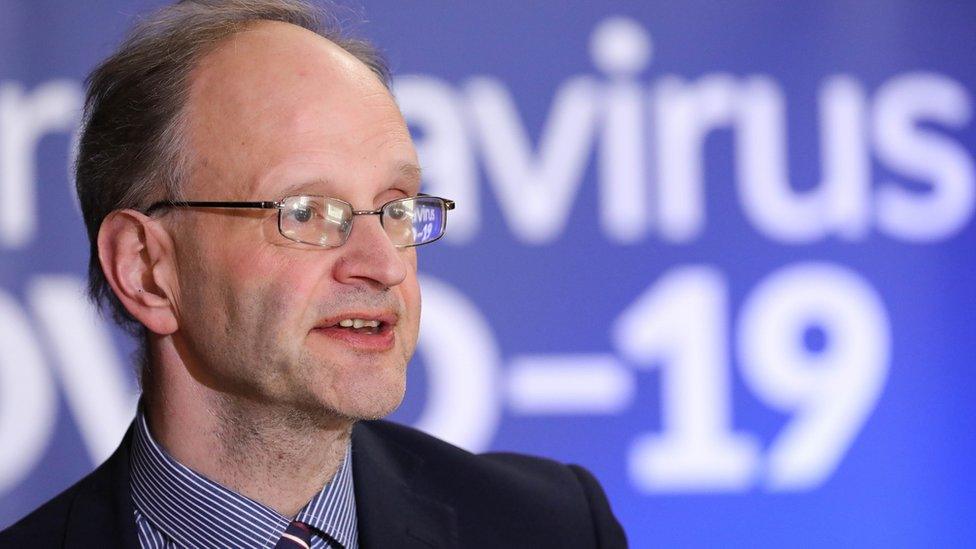
Education Minister Peter Weir said he was "mindful of the impact the pandemic is having on our children and young people"
Many pupils were subsequently taught remotely by teachers who adapted to providing lessons online, but that provision was mixed.
While some schools and families made the move to remote learning relatively smoothly, for others it was a struggle.
A report by the Education and Training Inspectorate (ETI), for example, found about half of pupils in some post-primary year groups did not take part in remote learning after schools closed.
It quickly became apparent schools would not reopen before the summer holidays.
That meant GCSE, AS, A-level and BTec exams due to take place in May and June were cancelled.
In the absence of exams, grades provided by schools were due to be moderated by the Northern Ireland exams board CCEA to give pupils results in August.
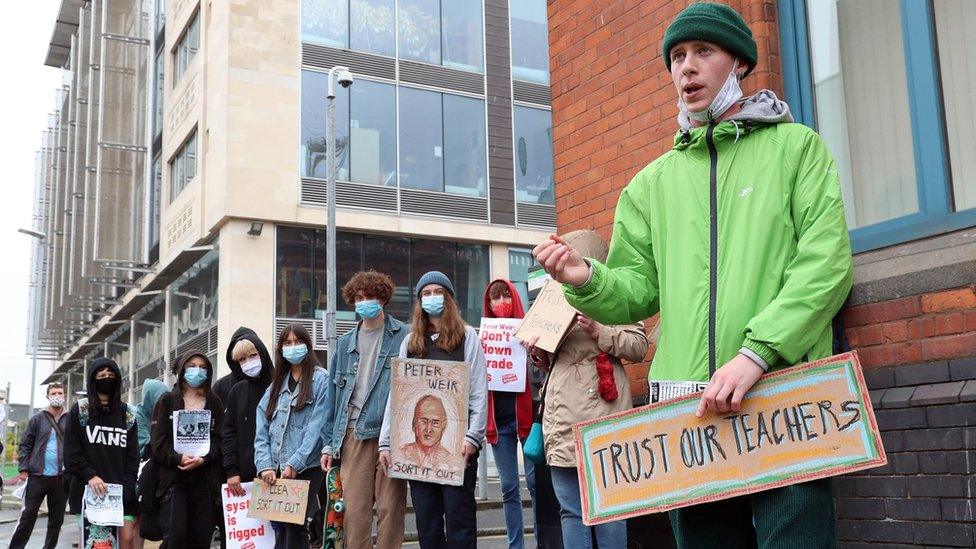
Prior to the education minister's U-turn, students protested in Belfast about how grades had been awarded
But that process collapsed after many results provided to CCEA by schools were downgraded, provoking outrage from students and teachers.
Within days of A-level results being given out, the Education Minister Peter Weir - having defended the system - had to U-turn.
The GCSE and A-level results ended up being changed to "centre-assessed grades" provided by schools.
BTec students at schools and colleges in Northern Ireland, meanwhile, faced a fiasco too with many dealing with delays in actually getting their results.
Meanwhile, university and further education (FE) staff and students faced huge challenges as campuses closed and teaching and exams moved online in March.
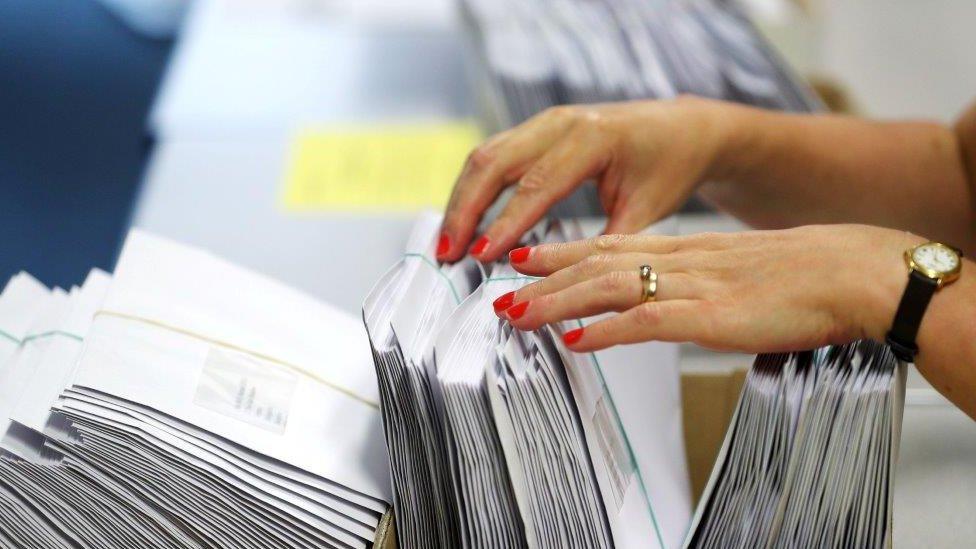
Some BTec students faced delays in getting results
Students graduated at home in front of a computer screen rather than at the traditional ceremony.
Despite numerous safety measures, a brief attempt to increase face-to-face teaching on campus at Queen's at the start of the new term in September led to an increase in Covid-19 cases and large numbers of students self-isolating.
That meant most degree courses moved online again, with face-to-face teaching only taking place where it was essential.
In schools, social distancing measures were changed to allow all pupils to return in September.
However, it was far from a "normal" school year - with principals, teachers, pupils and parents facing many tests.
More uncertainty to come
One-way systems, hand-sanitiser and children not mixing outside their classroom "bubbles" became part of day-to-day life in many schools.
Inevitably, Covid cases in schools led to some pupils and staff spending weeks at home in self-isolation as a result.
But the fact that attendance rates overall remained relatively high - if lower than in previous years - shows just how hard schools worked to try to overcome the many challenges they faced.
A scientific paper presented to the executive showed just how important those efforts were.
It said that while closing schools brought the virus transmission rate down, the move could damage the education, well-being and mental health of many pupils.
There was even reason for celebration in December when Northern Ireland's primary pupils were ranked among the best in the world in Maths in international tests.
But with the transfer tests and important GCSE exams due to take place at the start of the new school term in January, there are more challenges ahead.
Peter Weir has said schools should reopen as planned in early January but that is likely to be kept under review depending on the wider public health situation.
So 2021 is set to begin with yet more uncertainty and more challenges ahead for everyone in education.
Related topics
- Published18 December 2020
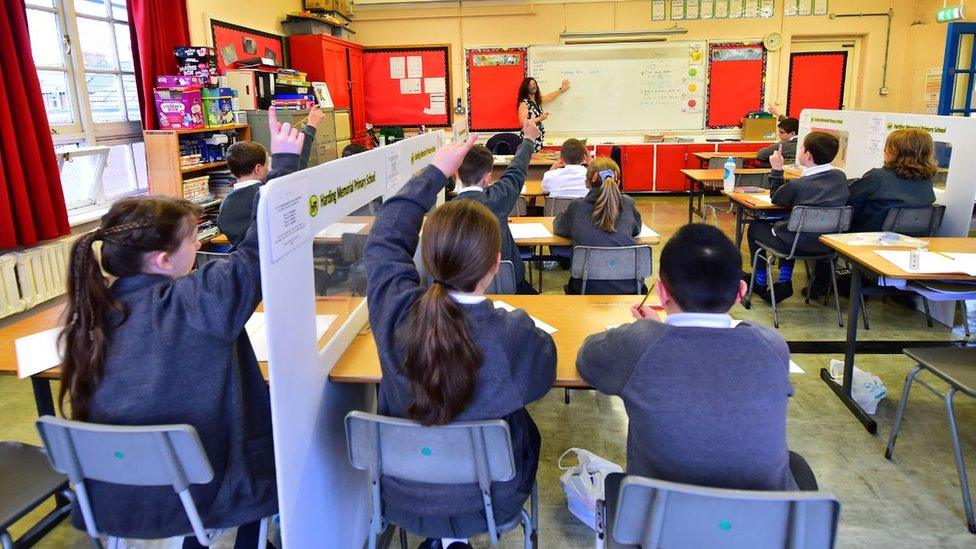
- Published8 December 2020
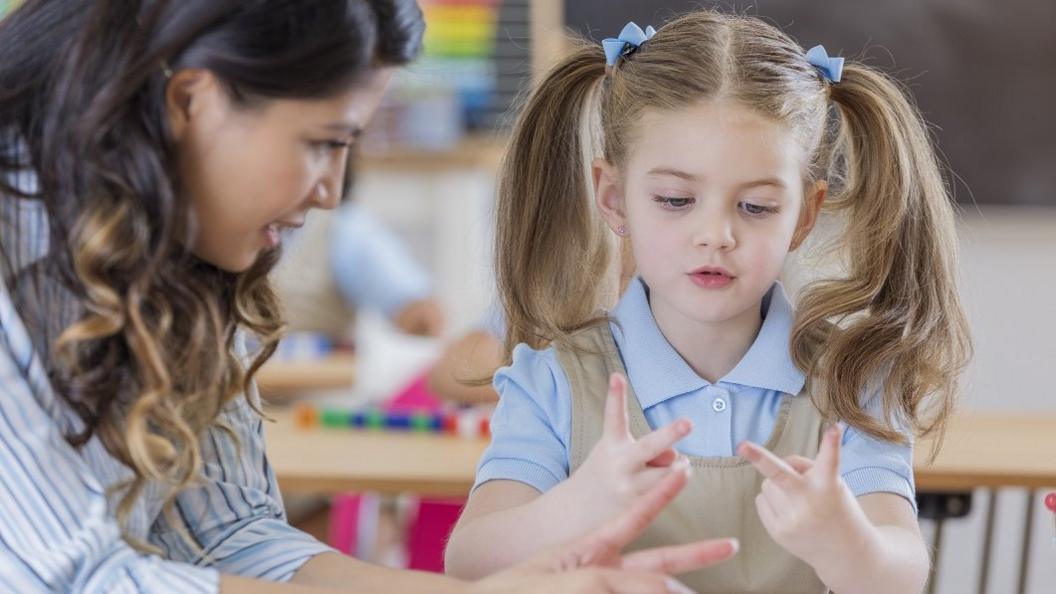
- Published6 August 2020
